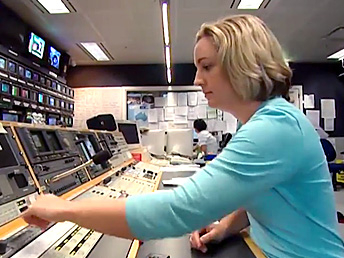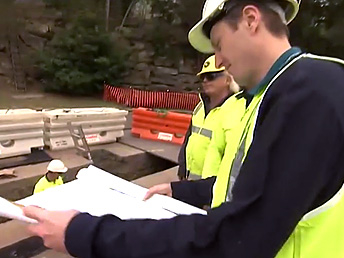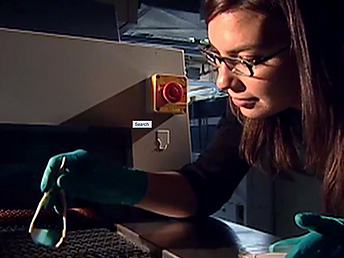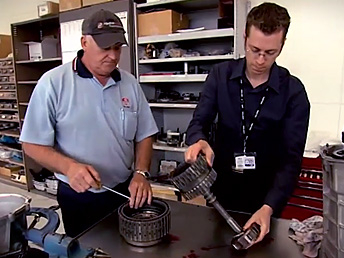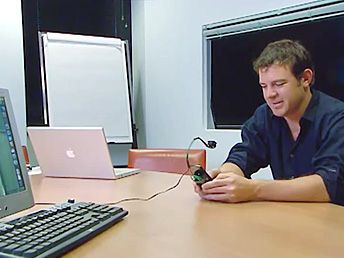
PhD in Materials Engineering
A materials engineer investigates the properties of materials such as metals, plastics and ceramics. A PhD is a special type of university qualification that involves carrying out your own research project and writing a thesis. You can still be a materials engineer without completing a PhD.


What the job looks like
Salary expectation
starts at $54,196 up to $133,955+

The good
- Understanding how things work
- Discovering a new way of developing a product
- Using advanced equipment and the latest technologies
- Working as part of a team
- Potential to travel and attend conferences or work overseas
- Possibility of owning your own business
- Working across a range of places like universities, defence or air services
The not so good
- Supervisor meetings can be nerve wracking
- Working to tight deadlines
- Understanding how a system works quickly
As a materials engineer you will help design new products or improve existing ones by altering the properties of the materials used. You could find yourself working across the manufacturing, environmental, automotive or telecommunication industries.
Almost everything you use in daily life has been developed by a materials engineer including cars, DVDs, plates or tupperware, sporting equipment and even the braces you might have on your teeth. To pursue a career in materials engineering, you should have a love of physics and a desire to understand how things work.
You will also find yourself using mathematics to work out physics and chemistry formulas to help design and build a product that is safe and practical.
Good English skills will also be important to help you with your studies after school especially if you do want to complete a PhD. As a materials engineer, you will be reading and writing reports plus you will need to quickly get through any briefs you are given for a project.
Doing a PhD generally takes between 3-5 years and requires self-motivation and discipline. After carrying out experiments and research, you will write up your results and conclusions to form a thesis.
I enjoy it because I can get my hands dirty and know that I’ve made the metal from start to finish.

Pathways to this career
Subject suggestions for the HSC
Choosing your HSC subjects from this list could really help with your career. Think carefully about what you want to study after school as you might need to choose specific HSC subjects for that course and to count towards your ATAR (Australian Tertiary Admission Rank). An ATAR is your academic rank in relation to other HSC students and helps with University admission.
HSC subjects
Some subjects will count towards your ATAR, others will not. Check with your career advisor before making subject selections.
- English (Advanced or higher)
- Mathematics (2 unit or higher)
- Physics
- Chemistry
- Engineering Studies
What can I do after I have finished school?
University degrees
Studying one of these degrees can help with your career.
- Bachelor of Engineering
Suggestions
Check out Engineers Australia for more information
- Approach any engineering companies in your local area to see if you can do some work experience
- Keep an eye out at your school for any competitions you can enter that will help build your engineering skills
- Find some good engineer sites and subscribe to any e-newsletters to keep up with information
- Search job sites like Seek to get a better idea about the work you can do as a materials engineer
- Go to career expos and events like university Open Days to find out more information about what you will study
